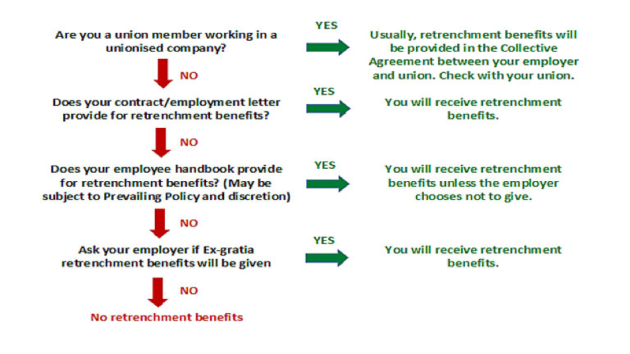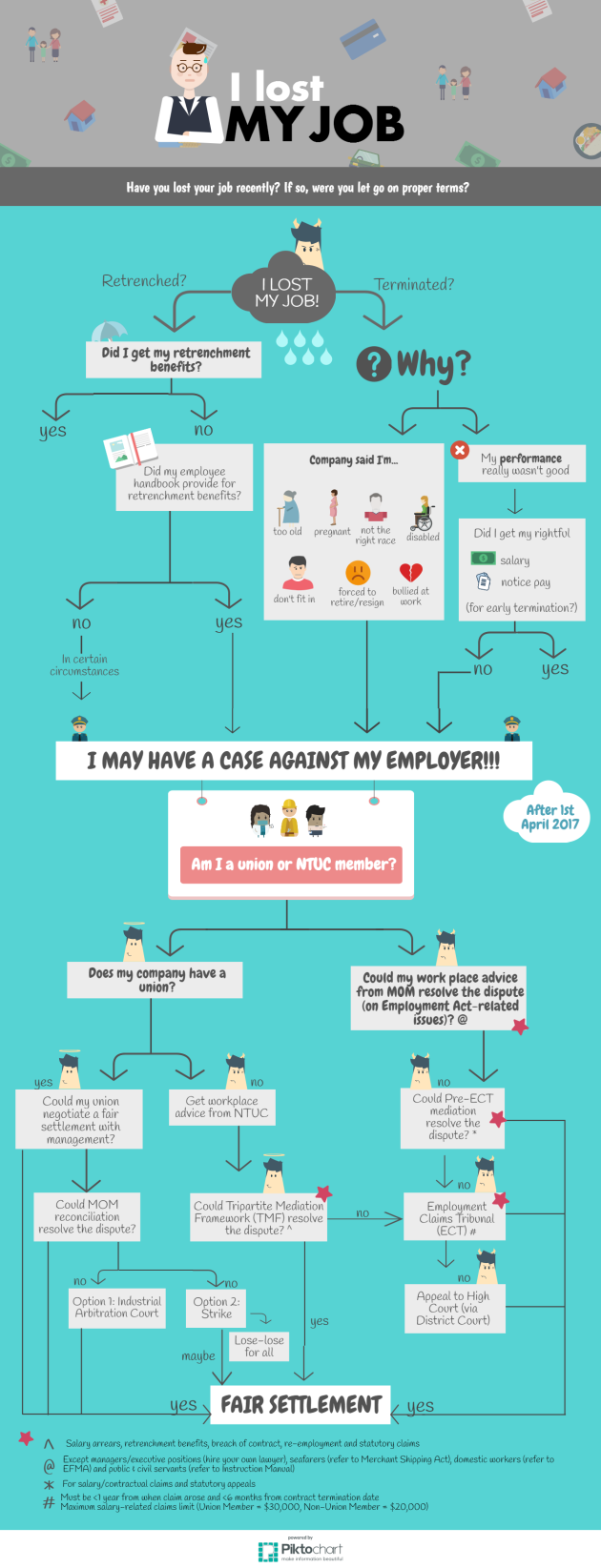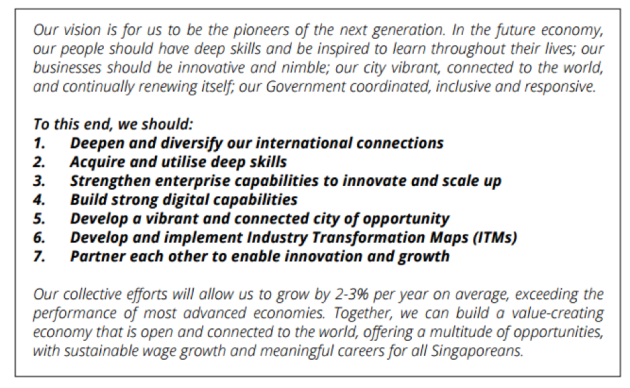2 Singapore unionists slam Surbana Jurong over sacking of 54 workers
-

ricky l
16 seconds ago
So how does the Trump phenomenon, Brexit phenomenon and Populism rearing its ugly head?
Precisely it is because of :-
(1) Anti-elite
(2) Anti-establishment
(3) Anti-Capitalism
because elites, establishments, captialism --- sabo or unfairly treat the workers and staff --- and cause untold sufferings to them.
That is why Americans workers and staff, UK workers and staff, West workers and staff - all are revolting --- and overthrow the traditional Government.
So do watch out for this phenomenon.
Asia are not immune.
See less

ricky l
5 seconds ago
This is the explanation of karma in layman term - with life examples.
ricky l
16 seconds ago
To prevent the Trump phenomenon or Brexit phenomenon - there is a need to fix the HR practices and HR policies first.
Treat staff and workers as "Human Capital", as "Asset", as "Talent" - that if properly motivate, properly developed and properly deployed - will bring enormous benefits to the Company and to the Nation.
Staff and workers should not be treated as "commodities", as "dispensable" - because it will attract the Universal Law of Karma.
See less
ricky l5 minutes ago
Why is it so?
Because 万法唯心造, 由因缘生, 由因缘灭。
When the intent (HR practices and policies) is wholesome - it will elicit positive energy.
When the intent (HR practices and policies) is unwholesome - it will elicit negative energy.
The whole negative energy --- is due to the unwholesome intent of negative energy --- that is why there are so much anger in the workers heart worldwide.- See less
Surbana’s labelling of its terminated staff as ‘poor performers’ is unacceptable: Lim Swee Say
Manpower Minister Lim Swee Say has criticised Surbana Jurong for labelling the workers that the Temasek-Holdings owned consultancy has terminated as “poor performers”, saying that it was unacceptable.The way that Surbana terminated the 54 workers fell short of established human resource practices, Lim said on Tuesday (7 February).Speaking in Parliament about the termination that took place last month, Lim said, “This is the first time that the employer has conducted such a major termination exercise and announced publicly that these workers are labelled poor performers. As a Manpower Minister, it is something that I do not find acceptable.”He was responding to questions from various members of Parliament about updates of the Ministry of Manpower’s investigations into the incident.Surbana Jurong group chief executive Wong Heang Fine reportedly explained the terminations to staff by saying in an e-mail that the company could not allow poor performers to continue to affect the 99 per cent who were performing.The termination was criticised by union leaders who said that the company did not follow due processes before terminating the workers.Of the 54 terminated workers, 14 are members of the Building Construction and Timber Industries Employees’ Union (BATU).BATU president Nasordin Mohd Hashim said in a Facebook post, “Eight of our members were re-employed staff who were offered re-employment or had their contract renewed. Why did the company offer them re-employment or renew their contract if their performance was not satisfactory to begin with?”Lim told the House that his ministry expects companies to conduct their HR practices in a responsible and progressive manner.“In this particular case, we are certainly concerned that a major employer could commit such a HR practice gaffe,” Lim said.The management of Surbana and unions have since reached an agreement on an ex-grata payment for the affected employees, said Lim, adding that this was a “fair outcome” for the affected employees.Lim added, “The company has acknowledged that the process could have been better managed…This episode serves as a good reminder to employers that termination exercises should be conducted in a responsible and sensitive manner.”Under the Employment Act, employers who terminate employees on grounds of poor performance must substantiate these claims based on documented incidents of poor performance. Employees who feel they have been unfairly dismissed may file an appeal with MOM.Lim concluded, “I hope we do not come across another case like this…At the end of the day, it does not mean that the (affected) person cannot do well in other places. The work environment, HR practices are also contributing factors.”- In 2016 alone, 19,000 people in Singapore were made redundant. Putting that into perspective, that’s almost 1 in 200 working people. High profile job losses made news headlines, such as during the staff terminations and/or retrenchments from SMRT, SPH, Surbana Jurong, Inchcape, ANZ, and Raffles Country Club.Retrenchment can arise from multiple reasons, from not getting along with your boss to the harsh reality of your job becoming obsolete. Regardless of the reason, retrenchment is not an issue that we can sweep under the carpet, thinking that we are too young to be laid off.Here are some things you need to know.
1. You Are Never Too Young To Be Retrenched
One misconception about retrenchment is that it can only happen to the middle-aged age group. Even though it is true that middle-aged executives were reported to be “hardest hit by layoffs“, retrenchment is not completely foreign to younger people.Singapore’s youth unemployment rate for those below 30 increased from 3.8% in March to 7.1% in June in 2016, with one retrenched individual reflecting that companies preferred to let the younger ones go as they contribute less to revenue. Another young employee who was let go from his first job after university, foresaw no “prior warning” and that it came as a “huge surprise”.The optimism bias that your job is perpetually secure is actually dangerous because you may not be prepared for the day you lose your job.The incorporation of more advanced technologies in industries such as Fintech, and increasingly Foodtech, also compounds the risk of career instability, especially in easily automated roles (which PMEs are at more risk than low wage workers).Robot restaurant – Rong Heng Seafood Restaurant / Image Credit: asiaoneFactoring how dismal it may sound, some companies may also “set” employees up for retrenchment by “rigging” KPIs to be so high that they become impossibly tough to hit.2. Retrenchments Can Be Disguised
While you might be confident of finding a new job, the main concern is if you know how to protect yourself in terms of claiming retrenchment benefits from your previous position.A recent article in November chronicled how workers were being “cheated” out of their benefits by being terminated with a month’s notice, as stated in employment contracts.According to NTUC Assistant Secretary-General Patrick Tay, such irresponsible retrenchments can happen to anyone across the board, and if “disguised” properly, can appear legal. Although companies are now required to notify the MOM of retrenchments, masking these actual retrenchments lets companies avoid “bad press“. Retrenched staff might also be potentially shortchanged in terms of retrenchment benefits, which you can read about here.3. Know Who Can Represent Your Workplace Interests
As stressed by Mr. Tay, it is important to know what union help you can get so that the union can help with negotiating the retrenchment payout as well as helping you in your job transition.June calls herself a union member “by chance” as she had happened to chance upon a UWEEI (United Workers of Electronics & Electrical Industries) roadshow at her former company, and signed up for union membership.In fact, she got retrenched shortly after with a week’s pay of retrenchment benefits. Her union was able to successfully negotiate a three-fold increase in retrenchment benefits as well as an extra 2 weeks’ pay for up-skilling courses.4. Workplace Advice for Your First Job
What about fresh graduates who aren’t familiar with what they need to know in their first job?The NTUC U PME Centre and Law Society of Singapore have published a legal guide for first jobbers called “My First Job” where you can get advice on employment contracts, retrenchments, restraint of trade and terminations.You can also contact the NTUC U PME Centre for workplace advice online.5. Resolve Workplace Disputes If I Lose My Job
Firstly, you need to know why you lost your job.If your boss gives you iffy excuses which are not related to performance, or if you didn’t get your retrenchment benefits, salary and/or notice pay upon termination, there is a chance you have a case against your employer.The infographics below outline what young PMEs who have lost their jobs or been retrenched can do. Remember to download/share/bookmark them for easy reference!Before 1 April 2017
From 1 April 2017 Onwards
From 1 April 2017, if you have a salary-related dispute against your employer, you can approach the Tripartite Alliance for Dispute Management (TADM), which includes the Employment Claims Tribunal (ECT).The new TADM system covers more workplace issues and there is no cap to your salary to be eligible for this. The infographic below will be applicable from April 2017. (Remember to save this down too!)Retrenchment Is Not The End
It is bad yes, but it’s not a permanent roadblock.Think of it as a chance to start anew, and look at opportunities in different job roles, industries and even different countries! Perhaps at your old job, you were not able to fully utilise your strengths, so now would be a chance to look for a new role in which you can truly shine.In response to a worried question by a MediaCorp interviewer on losing her job to technology, NTUC Secretary-General Chan Chun Sing shared how technology actually enables working people with global skill sets to serve a global audience.He pointed out that jobs of the future will be “high tech, high touch and high trust”, and Singapore has a good head-start in the “high trust” category.The Committee on the Future Economy listed acquiring and utilising deep skills as one of the 7 strategies to help Singaporeans be prepared for the future. This would see unions working in concert with enterprises and the Government to move SkillsFuture forward and care for the wellbeing of all Singaporeans.Here some other initiatives that the Labour Movement has embarked on to help working people sort out their careers. From invaluable work advice schools would’d never teach you, concerns about finding that elusive job, and finding your job of tomorrow, knowing all this will help not only job seekers, but also people having problems in their job.The Labour Movement wants you to know that losing your job isn’t the end. There are avenues for workplace advice, channels to seek redress and plans in place to help you into your future job.Featured Image Credit: @passerbyshaz / Vulcan PostThe post [Infographics] Retrenchment in Singapore And What You Should Do If You’ve Been Let Go appeared first onVulcan Post.









